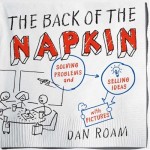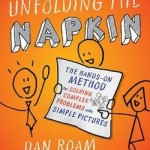See Much Better By Thinking Differently
 Believe it or not your mindset has a big impact on how well your eyes work. The assumption that you should be able to see something or that you have excellent eye sight translates into improved visual performance scores. This fact was dramatically illustrated in a new research study, Vision Gets Better with the Right Mindset, reported in Science News.
Believe it or not your mindset has a big impact on how well your eyes work. The assumption that you should be able to see something or that you have excellent eye sight translates into improved visual performance scores. This fact was dramatically illustrated in a new research study, Vision Gets Better with the Right Mindset, reported in Science News.
“Eyesight markedly improved when people were experimentally induced to believe that they could see especially well, Langer and her colleagues report in the April Psychological Science. Such expectations actually enhanced visual clarity, rather than simply making volunteers more alert or motivated to focus on objects, they assert.”
I have seen similar studies concerning memory. If you really believe you have a great memory (or a very poor one) you do better (worse) on recall and recognition tests.
So how do you get the right mindset to achieve high-performance vision? One way may be to do some visual training and score well. You may want to check out, How Good are Your Visual Skills? There are a number of straight forward exercises and tests covering perception, tracking, focusing and eye teaming. For example, one of the perception test (figure ground) is shown in the picture above. Do you see the owl?
I am interested to hear from readers that have used specific techniques to develop affirming assumptions about their ability to see.
Source: Image of Pig
Categories: Perception, Training Tags: Mindset
3-Hour Brain Boot Camp at UCLA
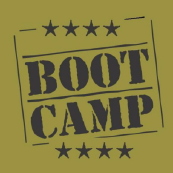 The Center for Memory and Aging at UCLA offers a half-day intensive course that covers (and I quote):
The Center for Memory and Aging at UCLA offers a half-day intensive course that covers (and I quote):
- Measure baseline memory, stress and fitness levels to individualize healthy lifestyle programs.
- Learn basic techniques to respond to everyday memory challenges..
- Sample a healthy brain diet and learn recipes for a brain-protective nutritional plan.
- Master advanced memory techniques for names and faces.
- Practice relaxation exercises to improve mental focus.
- Map out a daily lifestyle plan for maintaining benefits for the long haul.
- Gauge progress and notice results in just one day.
The course is geared towards older adults with memory concerns. It was developed by Gary Small and other experts in memory, aging and the brain.
Interested to hear from readers that have completed this course or similar courses that take a scientific approach to age-related memory challenges.
Categories: Cognitive Decline, Memory and Learning, Older Adult, Training Tags:
Solve Problems and Learn While You Sleep?
 We spend a good part of our life sleeping and dreaming. Getting adequate quality sleep is essential for brain health. But we may be able to go farther than that and tune how we sleep to enhance cognitive performance. Lucid dreaming, subliminal learning and cognitive priming are three techniques that have been suggested for getting more out of our brains even while we sleep. We will cover these topics as well as how sleep in general impacts peak cognitive performance on the Next Brain Blog.
We spend a good part of our life sleeping and dreaming. Getting adequate quality sleep is essential for brain health. But we may be able to go farther than that and tune how we sleep to enhance cognitive performance. Lucid dreaming, subliminal learning and cognitive priming are three techniques that have been suggested for getting more out of our brains even while we sleep. We will cover these topics as well as how sleep in general impacts peak cognitive performance on the Next Brain Blog.
Cognitive priming is my personal favorite. I have done it with good results for nearly two decades. I have never seen any scientific studies (until now) that back it up.
Cognitive priming to improve performance through sleep is simple to do. You intensely immerse yourself in the topic to learn or problem to solve near bedtime. When you sleep you want to have a dream about the problem or topic. Upon waking you should be able to make much better progress on the topic or problem than you could have if you did not dream about it.
I was happy to hear that such phenomenon was demonstrated under scientific conditions in a a recent study at the Beth Israel Medical Center. I was reported on in the New York Times as Learning While You Sleep. Volunteers were given the task of learning to move through a complex maze. After a training period some of the group slept for 90 minutes and the others just rested.
Re-testing revealed that those that slept and dreamt about the maze had a 10 times improvement in score while those that slept but did not dream or just rested showed no improvement or even a a worse score.
Categories: Memory and Learning, Problem Solving, Sleep, Training Tags:
Fish Oil Fails to Boost Cognition in Older Adults
 Another major scientific study on a technique for improving brain function and cognitive performance has delivered a negative result. The study looked at the cognitive impact of taking Omega 3 fatty acid or fish oil over a two year period on 70-80 year olds. The study found:
Another major scientific study on a technique for improving brain function and cognitive performance has delivered a negative result. The study looked at the cognitive impact of taking Omega 3 fatty acid or fish oil over a two year period on 70-80 year olds. The study found:
No cognitive improvements as compare to a placebo.
The author of the study cautions drawing strong conclusions as it may take more than two years to see an effect or it might be essential to start earlier in life. To quote:
“From the data we have collected in the OPAL study there is no evidence of an important benefit for memory or concentration of increased omega-3 fatty acid consumption over a two year period among older people with good cognitive health. However, it is important to keep in mind that poor cognitive function can take many years to develop and although this is the longest trial of its kind ever conducted, it may be that it was not long enough for any true beneficial effects to be detected among this healthy cohort of older people”.
OPAL stands for Older People And omega-3 Long-chain polyunsaturated fatty acids. The OPAL study seeks to discover simple dietary supplements that will help maintain cognitive and retinal function later in life. We will continue to track their work and report results on the Next Brain Blog.
Categories: Cognitive Decline, Diet, Memory and Learning, Older Adult Tags:
Brain Training Software Fails Key Scientific Test
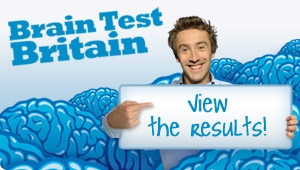 Last year the BBC in collaboaration with leading neuroscientists conducted a large-scale scientific test of brain training software. They wanted to answer the question – does brain training software work?
Last year the BBC in collaboaration with leading neuroscientists conducted a large-scale scientific test of brain training software. They wanted to answer the question – does brain training software work?
The study recruited over 11,000 healthy adults of all ages and had them train their brains using software 3 times per week for 6 weeks. The results were negative.
Those that did the brain training showed no cognitive improvement beyond what you get from surfing the internet for the same period of time.
Scores on the tests provided by the brain training software did improve but none of that translated into better cognitive performance on tasks outside the software. This held up for a wide range of cognitive activities including reasoning, planning, problem-solving, short-term memory, attention, visual spatial processing and mathematics.
This is a landmark study that calls the relative effectiveness of brain trainig software into question. To quote the study:
 The results are truly amazing. The Brain Test Britain study found no evidence that the benefits of playing brain training games transfer to other brain skills. (However, the results do suggest that further research into brain trainers aged 60 and over is required. Dr Adrian Owen (pictured to the right) said: “The result is crystal clear. Brain training is only as good as spending six weeks using the internet. There is no meaningful difference.”
The results are truly amazing. The Brain Test Britain study found no evidence that the benefits of playing brain training games transfer to other brain skills. (However, the results do suggest that further research into brain trainers aged 60 and over is required. Dr Adrian Owen (pictured to the right) said: “The result is crystal clear. Brain training is only as good as spending six weeks using the internet. There is no meaningful difference.”
You can review the findings, look at the details behind the work and even play the games that were used for the training at UK Lab. They are continuing the study with participants that are 60 years and older.
I am interested to hear from readers that do regular software-based braining training exercises. What do you think of this study? Will it change your brain training routine?
Categories: Executive Function, Memory and Learning, Mental Focus, Perception, Software, Training Tags: brain training
A Store Just for Your Brain
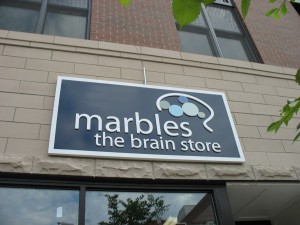 Marbles is a store just for your brain. They have four locations in Illinois and are looking to expand. Fortunately, their products are available online.
Marbles is a store just for your brain. They have four locations in Illinois and are looking to expand. Fortunately, their products are available online.
They offer an overview of brain fitness, a free self assessment and products to improve memory, critical thinking, coordination, word skills and visual perception. They provide books, brain software, toys and novelty items from many different vendors. Marbles takes the time to make gift bundles for the Wordsmith, Trickster, Creative Genius, Brainetics (whatever that is) and others. They offer some free Brain Coaching and sponsor a number of interesting events.
Marbles could well be a superstore for anyone looking to improve brain function and cognitive performance. They will be the subject of regular posts on the Next Brain Blog. I am interested to hear from readers that have visited one of the store locations.
Categories: Books, Cognitive Decline, Decision Making, Memory and Learning, Perception, Software, Training Tags: brain training, cognitive fitness
Get Benefits of Long-Term Meditation in Just Days?
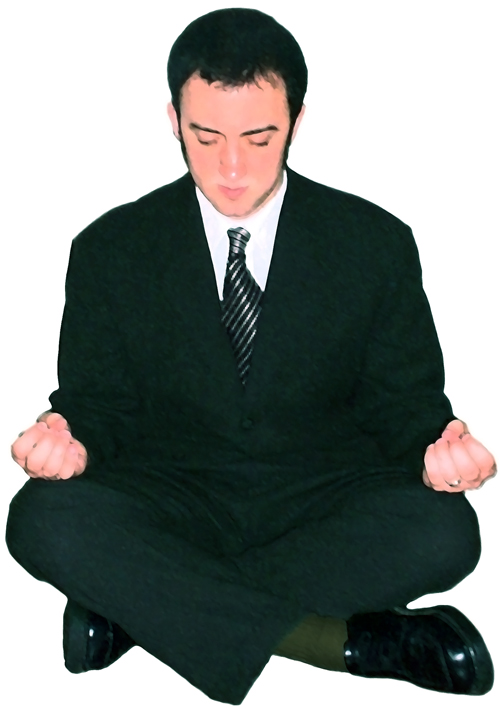 It was about 10 years ago when research studies began to suggests that a little bit of physical activity could be good for you. Taking a short walk or even just climbing a flight of stairs might be heart-healthy. This was a big surprise for many as traditional wisdom was that you must work-out multiple times per week for many weeks to see benefits.
It was about 10 years ago when research studies began to suggests that a little bit of physical activity could be good for you. Taking a short walk or even just climbing a flight of stairs might be heart-healthy. This was a big surprise for many as traditional wisdom was that you must work-out multiple times per week for many weeks to see benefits.
Now the same may be emerging for brain training at least in the area of mindfulness and meditative practice. I am seeing studies that suggest a few days of training may produce what we once thought took months or years. The Science Daily Blog reports one such study, Brief Meditation Helps Cognition:
“Psychologists studying the effects of a meditation technique known as “mindfulness ” found that meditation-trained participants showed a significant improvement in their critical cognitive skills (and performed significantly higher in cognitive tests than a control group) after only four days of training for only 20 minutes each day.”
Specific improvements included increased mental energy, reduced anxiety and improved working memory, visual/spatial processing and executive functioning (attention, planning thinking).
Interestingly, no special training technique was used.
As described in the paper, “participants were instructed to relax, with their eyes closed, and to simply focus on the flow of their breath occurring at the tip of their nose. If a random thought arose, they were told to passively notice and acknowledge the thought and to simply let ‘it’ go, by bringing the attention back to the sensations of the breath.” Subsequent training built on this basic model, teaching physical awareness, focus, and mindfulness with regard to distraction.
Mindfulness training is not as natural as climbing a flight of stairs or taking a walk but clearly it is something we can learn. I am interested to hear from readers that practice mindfulness, especially how they were able to initially learn the technique.
Source: Image of Meditating Man
Categories: Ancient Ways, Executive Function, Mental Focus, Training Tags: meditation, mental energy, mindfulness
Fast, Free and Fun Cross-Training for Your Brain
 Crossword puzzles, a quick round of Sudoku, spot the difference, cryptograms or dozens of other short single-player games turn out to be a great way to improve memory, mental focus, problem solving ability and a host of other cognitive functions. They are a bit old school compared to the new brain games engineered on the latest neuroscience but research shows they can be just as effective!
Crossword puzzles, a quick round of Sudoku, spot the difference, cryptograms or dozens of other short single-player games turn out to be a great way to improve memory, mental focus, problem solving ability and a host of other cognitive functions. They are a bit old school compared to the new brain games engineered on the latest neuroscience but research shows they can be just as effective!
For a great collection of free, short and single player games and puzzles that will build your brain check out Smart Kit. The variety on this site is amazing. That is the key. You should be able to easily find one that is fun and when it gets boring there will be another waiting for you! The idea is to immerse yourself in a variety of short games and puzzles that cross-train your brain.
Interested to hear from readers that do any form of online cross-training for the brain. What products and sites do you use?
Categories: Memory and Learning, Mental Focus, Perception, Problem Solving, Software Tags: games
Which Fish are Best For Your Brain?
 A reader asked, is fish really good for brain function and if so which fish is best? Some fish contain Omega 3 fatty acids which have been shown to improve memory function, increase serotonin (elevate mood) and support longer-lasting cells and more efficient messaging.
A reader asked, is fish really good for brain function and if so which fish is best? Some fish contain Omega 3 fatty acids which have been shown to improve memory function, increase serotonin (elevate mood) and support longer-lasting cells and more efficient messaging.
Mindpower Magazine has an interesting post claiming that Tilapa (a popular fish) has little brain benefit as it contains Omega 6 rather than Omega 3 fatty acids. Here is their list of the best brain fish:
- Salmon (wild salmon is preferred to the farmed variety)
- Mackerel
- Trout
- Whitefish
- Bluefin Tuna
- Sardines
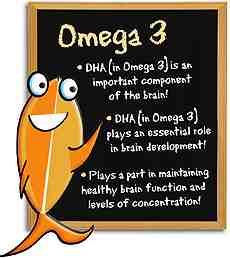 Jean Carper, author of Your Miracle Brain (discussed in another post) offers this list of Ten Fish with the Most Smart Fats:
Jean Carper, author of Your Miracle Brain (discussed in another post) offers this list of Ten Fish with the Most Smart Fats:
- Anchovy
- Bluefish
- Herring
- Mackerel
- Sablefish
- Salmon
- Sardines
- Lake Trout
- Tuna, bluefin
- Whitefish
There is considerable overlap in the two lists. Interested to hear from reader about their favorite brain fish or about which fish to avoid and why.
Sources:
Image of Fresh Fish Market and image of Omega-3 Poster
Categories: Cognitive Decline, Diet, Manage Emotions, Memory and Learning Tags:
Build Problem Solving Skills with Visual Thinking
Drawing a diagram can be a powerful problem solving technique. Creating a visual representation forces our brain to process information in a specific way and it provides something new for us to see or perceive. Any technique, no matter how simple, that cause us to think differently and see differently holds the promise for improving problem solving and creativity.
Visual techniques designed to systematically stimulated improved thinking will be a frequent topic on the Next Brain Blog. Take for example, the recent work by Dan Roam. He has two books on on using visual thinking including The Back of the Napkin and Unfolding the Napkin.
His work is based on a four-step approach to visual thinking including look, see, imagine and show.
If you want to a jump-start on Roam’s approach to visual thinking, check out this 8-page BPTrends review of the Back of the Napkin.
I am interested to hear from readers that have used visual thinking techniques to improve problem solving, creativity or other aspects of cognition.
Categories: Books, Executive, Leader, Perception, Problem Solving, Professional, Software, Training Tags: creativity

